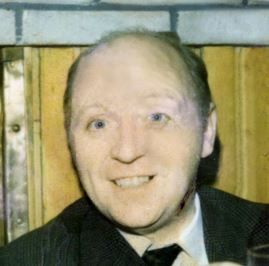The family of a man shot dead by the British Army in 1971 have secured a financial settlement from the Ministry of Defence.
Billy McGreanery, 41, was shot at the junction of Eastway, Lonemoor Road and Westland Street in Londonderry, late in the evening of September 14, 1971.
He underwent surgery at Altnagelvin hospital but died during the early hours of September 15.
The family received a public apology in 2013 from then Armed Forces minister Andrew Robathan speaking in the House of Commons, and they requested that a fresh inquest was conducted in his death.
Billy McGreanery was shot and later died from his injuries in Londonderry in 1971 (Family handout/PA)
The case was referred to Northern Ireland’s Public Prosecution Service (PPS) in 2017 who directed to the PSNI to carry out a number of inquiries.
Following an investigation, the PPS took the decision not to prosecute an individual known as Soldier A in relation to Mr McGreanery’s death.
The family have requested a review of this decision which is ongoing.
Earlier this year, the Attorney General for Northern Ireland, Dame Brenda King, directed a fresh inquest into the circumstances of Billy’s death.
However, this did not take place because of the Legacy Act which halted all legacy inquests.
Mr McGreanery’s nephew who is also called Billy McGreanery said they still hope to get justice over his uncle’s death.
“In my opinion, today the Ministry of Defence have made a financial retribution for the death, pain, anguish and sorrow they have inflicted on our family,” he said.
“I liken this process to a three-course meal that we fought very hard for and earned. The starter was the apologies for the wrongful killing of Billy, and today is the dessert, financial retribution, but they skipped the main course – justice – which we have hungered for for 53 years, and for which we can only hope.”
He added: “The PPS review puts the justice we crave firmly on the plate, and only a prosecution will satisfy our need for the justice we rightly deserve.”
Solicitor Gary Duffy, who acts for the McGreanery family, said the settlement is long overdue.
“Today’s settlement is a long overdue, but nevertheless, welcome endorsement of the family’s campaign to uncover the truth around this unjustified and unjustifiable killing by a soldier in the British army,” he said.
“This case highlights the value and merit of such legacy civil actions in truth recovery and obtaining justice. Furthermore, it exemplifies the need to move beyond the Legacy Act and its bar to prosecutions and inquests.
“We look forward to the reinstatement of the family’s inquest and for a decision on the prosecution of the soldier who shot and killed Billy.”
Sara Duddy from the Pat Finucane Centre which has supported the McGreanery family said the family still hope for justice and will not “settle” for an investigation by the Independent Commission for Reconciliation and Information Recovery (ICRIR) set up by the Legacy Act.
“Over a decade ago both the British government and the Ministry of Defence apologised to the family of Billy McGreanery following a review by the HET that found that their uncle was unarmed and posed no threat when Soldier A shot and killed him back in 1971,” she said.
“Today’s settlement is another acknowledgement for the wrong done that day and is welcomed by the McGreanery family.
“However, the real justice would be for Soldier A to be held to account for his actions, and for the PPS now to reverse the decision not to prosecute.
“We also have concerns that if the prosecution does not move forward, the family will also be denied the inquest they were granted by the Attorney General so close to the Legacy Act deadline.
“The Secretary of State has been ambiguous in his commitment toreinstate all legacy inquests, prioritising those that were prematurely halted without assurances that those granted more recently will also go ahead.
“Families will not accept the discredited ICRIR as any type of substitute.”
